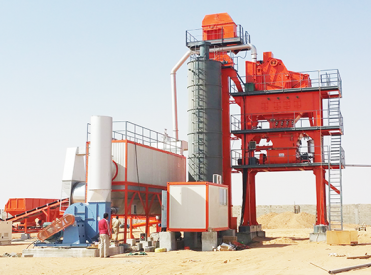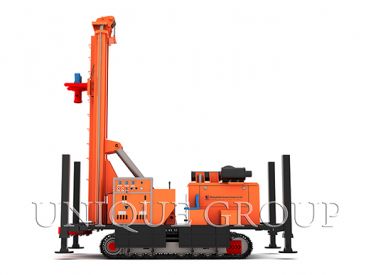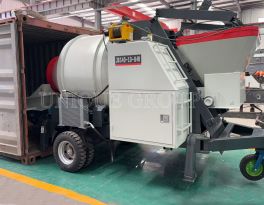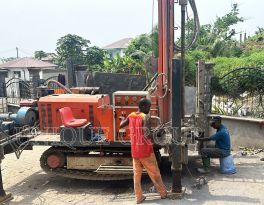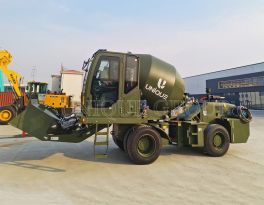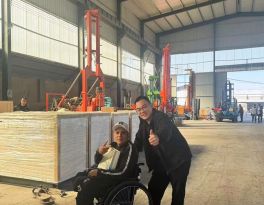
Phase 1: The Foundation - Strategic Site Selection & Meticulous Preparation
Your plant's success is literally grounded in its location.
Location Criteria: Prioritize sites with ample space for raw material storage (aggregates, binder), the production line itself, and finished product stockpiles. Crucially, ensure proximity to transportation routes for efficient delivery of raw materials and dispatch of hot mix asphalt (HMA) to project sites, minimizing costs and fuel consumption.
Groundwork: This isn't just leveling dirt. It involves comprehensive earthworks, installing robust drainage systems to manage water runoff, and pouring reinforced concrete foundations capable of supporting the immense weight and dynamic forces of aggregate dryers, towering mixing units, and storage silos. Proper preparation prevents costly settling and structural issues later.
Phase 2: The Engine - Precision Equipment Selection & Expert Installation
Choosing the right asphalt mixing equipment defines your plant's capabilities and efficiency. UNIQUEMAC offers solutions tailored to diverse needs:
Plant Type Selection:
Batch Plants: The gold standard for precise mix designs, especially projects requiring multiple aggregate blends, additives, or high percentages of Recycled Asphalt Pavement (RAP). They feature discrete stages: cold-feed bins, rotary dryers, and separate mixing towers where each batch is individually weighed and mixed.
Drum-Mix Plants: Engineered for high-volume continuous production. Key variants include parallel-flow and counter-flow designs. The latter is particularly efficient, directing exhaust gases against the aggregate flow, significantly reducing fuel consumption (typically 15-20% less than batch plants) and lowering emissions.
Core Components & Integration:
Cold Aggregate Feeder System: The starting point, featuring variable-speed conveyors and screening decks to accurately segregate and proportion different aggregate sizes.
Dryer Drum: Where aggregates are heated to the critical 150–180°C range. Counter-flow dryer drum technology enhances thermal efficiency and reduces environmental impact.
Mixing Unit: The heart of the plant. Here, precisely heated aggregates are combined with liquid asphalt cement (and optionally, RAP or modifiers) under controlled conditions. Advanced systems ensure homogenous, high-quality mix.
Non-Negotiable: Dust Control: Installing high-efficiency baghouse filters (>99% efficiency) is essential for emissions management, capturing particulate matter, ensuring regulatory compliance, and protecting the surrounding environment and workforce health. This is a critical environmental regulation requirement.
Professional Installation: Expert installation by qualified technicians, like those from UNIQUEMAC, ensures optimal alignment, calibration, and integration of all components from day one, maximizing performance and longevity.
Phase 3: The Nervous System - Robust Power & Intelligent Control Systems
Reliable power and smart control are vital for seamless asphalt production.
Electrical Infrastructure: Deploy robust high-voltage systems (e.g., 480V) to power demanding motors driving conveyors, dryer fans, and mixers. Strict adherence to electrical safety protocols, including Lockout/Tagout (LOTO) during maintenance, is non-negotiable for preventing accidents.
Automation & Control: Modern plants rely on sophisticated Programmable Logic Controllers (PLCs). These systems provide real-time monitoring and precise control over aggregate ratios, binder content, mix temperatures, and production rates. This level of automation ensures consistent quality, optimizes efficiency, and provides valuable data for reporting and operational efficiency improvements.
Phase 4: The Shield - Uncompromising Safety & Environmental Stewardship
Prioritizing safety and sustainability is both ethical and essential for long-term viability.
Hazard Mitigation:
Electrical Safety: Beyond LOTO, utilize thermal overload protectors and advanced diagnostic tools (e.g., wireless test systems) to detect phase imbalances or faults before energizing large motors, preventing catastrophic failures.
Fire Prevention: Install spark detection systems within the dryer drum and hot storage silos to trigger suppression or shutdown sequences instantly.
Proactive Emissions Management: Complement baghouse filters with continuous opacity monitoring to ensure compliance. Embrace sustainability by integrating efficient RAP handling systems. Using Recycled Asphalt Pavement (RAP) significantly reduces the need for virgin materials and lowers the plant's carbon footprint, aligning with modern environmental regulations and project specifications like Superpave.
Regulatory Alignment: Strictly adhere to relevant FAA/FHWA guidelines for producing asphalt meeting specific airfield or highway-grade requirements.
Phase 5: The Proof - Rigorous Testing & Commissioning
Before full-scale production commences, thorough validation is key.
Calibration: Meticulously verify the accuracy of all critical instruments – asphalt cement pumps, aggregate scales, and temperature sensors throughout the process.
Trial Runs: Produce multiple test batches using the intended mix designs. Rigorous laboratory testing must validate mix homogeneity, gradation, asphalt content, air voids, and performance against target specifications like Superpave.
Comprehensive Training: Ensure all operators and maintenance personnel are thoroughly trained on plant operation, quality control protocols, emergency procedures, and routine maintenance routines. Knowledge is the foundation of safety and efficiency.
Phase 6: The Pursuit of Perfection - Continuous Optimization & Proactive Maintenance
Launch is just the beginning; sustained excellence requires ongoing effort.
Tracking Sustainability Metrics: Monitor energy consumption, RAP integration rates, emissions data, and waste generation. Utilize frameworks like the asphalt plant sustainability scoring system to benchmark performance and identify improvement areas, enhancing operational efficiency and market competitiveness.
Routine & Preventative Maintenance: Implement a strict schedule. Weekly inspections of burner nozzles, conveyor belts, dust filter bags, and electrical connections are crucial. Proactive replacement of wear parts prevents unplanned downtime and costly repairs, ensuring consistent production efficiency.
Performance Analysis: Regularly review production data, quality control results, and operational efficiency metrics to fine-tune processes, reduce waste, and maximize output.
Key Considerations for Long-Term Success
Cost Efficiency: Factor in long-term operating costs. Counter-flow drum-mix plants often offer significant fuel savings. Efficient RAP use also reduces material costs.
Future-Proofing: Design with flexibility in mind. Ensure your plant can accommodate evolving mix designs incorporating additives like polymers or fibers. Consider modular expansion potential for future capacity increases.
Partnering with Expertise: Choosing an experienced asphalt mixing equipment manufacturer like UNIQUEMAC provides access to reliable technology, engineering support, and deep industry knowledge, significantly de-risking the setup and operation process.
Conclusion: Building More Than Asphalt, Building Legacy
Establishing a high-performing asphalt mixing plant is a complex, multi-faceted endeavor demanding expertise at every stage – from selecting the optimal location and plant type (be it versatile batch plants or efficient drum-mix plants) to implementing rigorous safety, emissions management, and quality control protocols. By meticulously addressing site preparation, equipment selection (including core components like the dryer drum, mixing unit, and essential baghouse filters), power and control systems, environmental compliance, and ongoing optimization, operators can achieve exceptional operational efficiency, consistent output quality, and long-term sustainability.
At UNIQUEMAC, we are committed to being your partner in this journey. As a leading asphalt mixing equipment manufacturer, we provide not just cutting-edge asphalt mixing equipment, but the engineering insight, support, and reliable technology you need to build a plant that sets the standard for performance, efficiency, and responsible production. Let's build the foundation for better infrastructure, together.
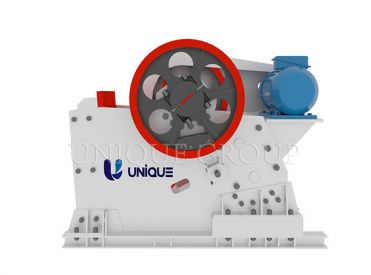
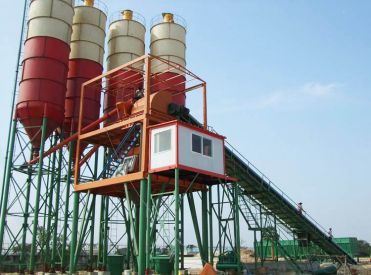
.jpg)
